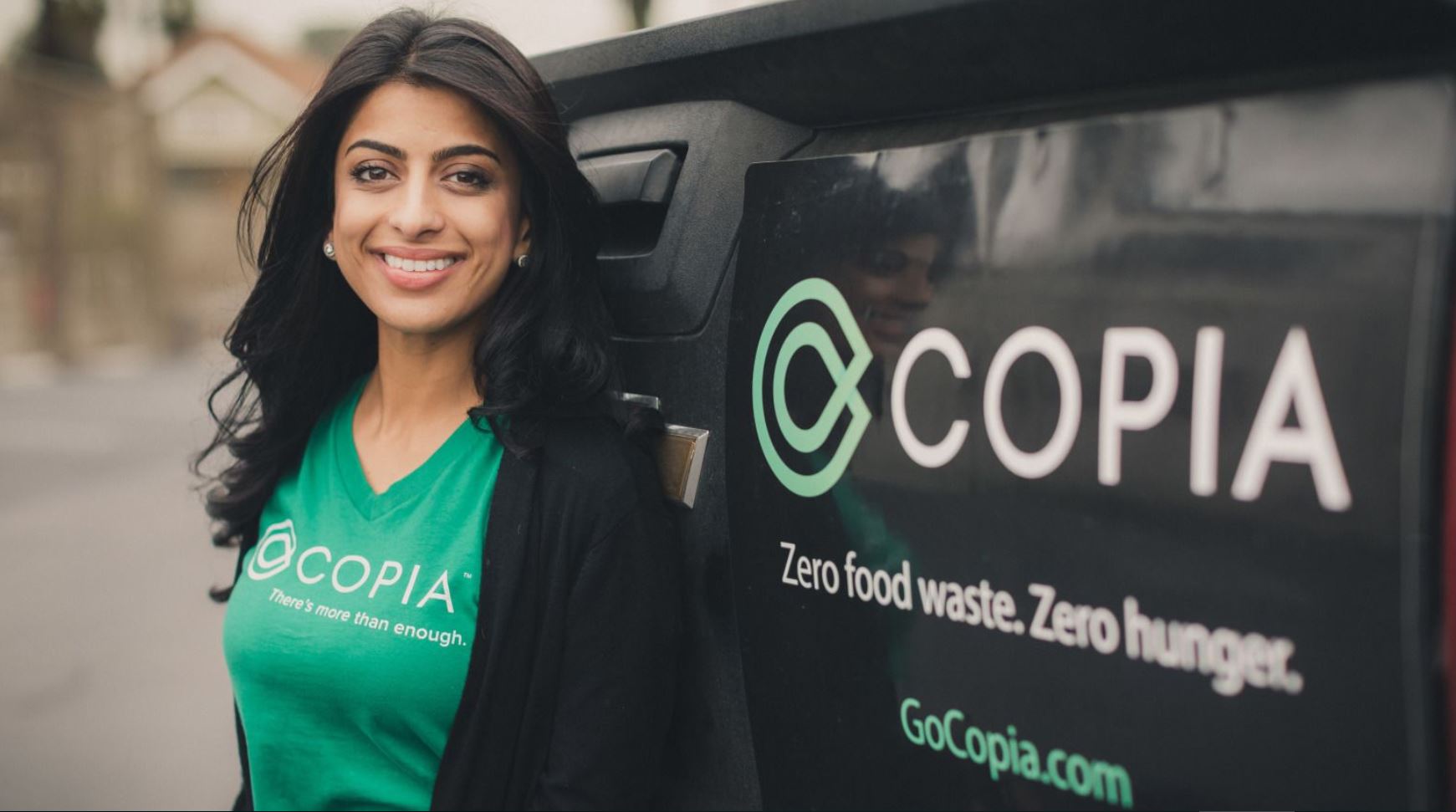Komal Ahmad, founder of food-sharing app Copia, has struck a deal with The LA Galaxy. This is the first deal between the entrepreneur’s waste-reduction system and a major sporting company.
“Hunger is the world’s dumbest problem,” Ahmad says. “Especially in the world’s wealthiest countries.”
Sports Deal Opens New Doors for Komal Ahmad’s Copia
Sporting events create some of the highest volumes of food waste in the United States. This makes them a rich opportunity for Ahmad’s re-distribution system, Copia.
Roughly 50 percent of all produce in the United States is thrown away. This comes out to some 60 million tons annually, worth $160 billion. Wasted food comprises the biggest single element in American landfills. And yet even with all that wasted food, one in six people in America face hunger, the majority of them children.
Reflecting on this problem, Ahmad wondered: What if, instead of throwing all that food into landfills, there was an easy way to redistribute it?
Her solution: Copia, a social start-up described as “Uber for food” that redistributes excess food to people in need. The venture has attracted national attention and earned Ahmad a 2016 Toyota Mother of Invention award.
Named after the Roman goddess of abundance, Copia works with Bay Area businesses like restaurants, grocery stores, catering companies, and now sports venues. The Copia app allows these companies to easily request pick-up. Within minutes, one of Copia’s drivers, known within the company as “Food Heroes,” arrives to pick up the food and transport it to nonprofits and food pantries.
Since its founding in 2015, Copia has helped feed millions of people.
Veterans and Children: Two of America’s Most Impoverished Groups
“By reducing food waste, we save money and resources, minimize environmental impacts, and most important, move towards a world where everyone has enough to eat,” Ahmad explains. “Extreme food waste in the presence of extreme hunger is one of the most disturbing, yet solvable, paradoxes of our time.”
Ahmad first learned about the problem of hunger when she was still in college. At the time, she planned to become a naval officer and physician. But things changed when she ran into a homeless man on the street begging for money to buy food. He had not eaten in three days.
Ahmad was surprised not only because the man couldn’t find access to food, but because he was veteran who had recently returned from Iraq. As someone planning to enter military service, she felt sympathy and took the veteran to lunch.
“It was almost like a glimpse of my future,” she recalls, given that she had just returned from summer training for the Navy. She began to realize that many homeless were in fact veterans.
“This hit home for me and inspired me to create a tangible solution that can change the reality that 50 million Americans go hungry every day,” she says. “I’ve built a scalable platform and company that enables businesses to seamlessly request a pickup of their excess food instead of throwing it away or composting it.”
Komal Ahmad: World Hunger is a Distribution Proble
Today, many of Copia’s “Food Heroes” are veterans who were once recipients of food donated through Copia.
“Now they come on as paid drivers and it’s not just a handout, but a hand up,” Ahmad says.
By partnering with large sources of food waste like the LA Galaxy, Ahmad can expand her company to reach even more people. She sees world hunger as a logistics problem that can be solved through grit and innovative thinking.
“It’s not a Miss Universe-type situation where I want world peace,” Ahmad concludes. “Hunger is a distribution problem.”
Learn more about how you can help re-purpose excess food via Copia.



